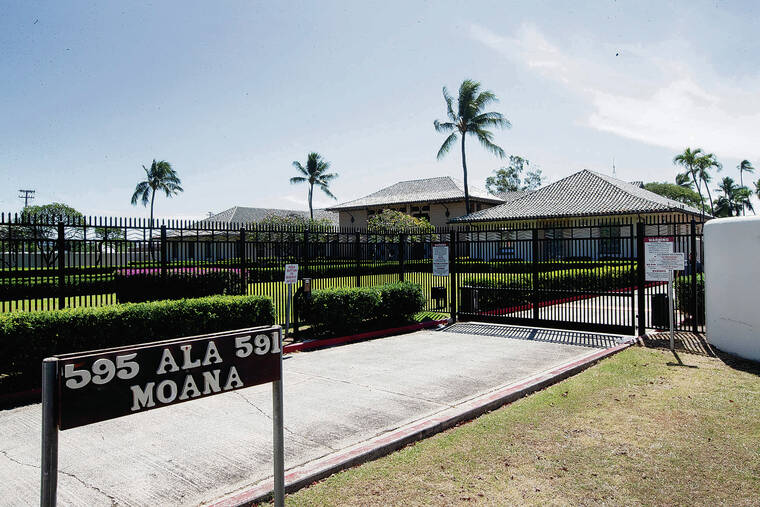NIUMALU — The annual telephone-book recycling campaign, which is on now, encourages students at participating schools to collect old phone books from the community, in hopes of easing the strain on Kaua‘i’s lone, nearly full landfill, saving trees, and winning prizes in two categories (most collected, and most collected per student population).
Mike McKenna, Kaua‘i manager for Verizon, joined the staff of Garden Isle Disposal and Allison Fraley, the county’s recycling coordinator, to welcome about a dozen representatives from Kaua‘i schools to GID recently for an informational luncheon about the recycling program that kicked off earlier this month.
The meeting was to orient school representatives in the mechanics of the recycling program, as well as provide them with more information on the Kaua‘i Recycles program.
Scott Kouchi, president of GID, welcomed all of the school representatives, and asked them to encourage all of the students to become involved and participate in the program, which he described as one of the larger projects in which everyone regardless of age may participate.
“It’s good to have the children do some sort of recycling work, and we’re happy to work with Verizon in collecting the phone books,” Kouchi said.
Steven Kaui, Alvin Tadani, and Elizabeth Gutierrez of GID are the more visible staff directly involved in the recycling project, running now through the end of February.
The final collection date is Friday, Feb. 27.
Prizes are provided by Verizon, Big Save, Inc., and, this year, to ensure more winners, Tadani announced that GID will also be a prize provider.
This move was done to equalize the collection playing field for smaller schools that have to compete against larger schools.
In addition to quantity, schools will also be scaled against a “per-capita” system, Gutierrez explained.
Books will also be weighed in as opposed to a physical count of books, to ensure more accuracy.
Geri Yamagata, student coordinator at Kaua‘i High School, expressed some concern about the lack of participation at the secondary-school level, which includes both the middle schools and high schools, because many donors prefer to give their old books to younger students from elementary schools.
This concern was shared by the program’s administrators, who promised to look into ways of encouraging more secondary-school participation in the future.
Once the students from the participating schools collect their old phone books, GID will provide containers at each school between Tuesday, Feb. 17 and Friday, Feb. 20.
This move, according to Tadani, will minimize traffic at the Nawiliwili facility. He encouraged leaders of each school to be sure to have enough volunteers available on pickup days to avoid having GID people work to load the containers, a problem he noted occurred during last year’s pickups.
The purpose of the program is to get students involved, he said. And, if there are no students, parents or staff available to help on pickup day, Tadani said the GID crews will simply leave.
That will leave school volunteers to make trips to the GID facility on Niumalu Road here on the final collection days, Thursday, Feb. 26, or Friday, Feb. 27, when books may be dropped off between 7:30 a.m. and 3 p.m.
Tadani stressed that due to safety and liability concerns, no school representatives will be allowed to drop off books prior to those final collection dates.
Representatives of schools wishing to take advantage of the final collection date should also call GID offices prior to those two dates, and upon arrival at the facility need to check in at the office.
Schools participating in this year’s program include Chiefess Kamakahelei Middle, ‘Ele‘ele, Island, Kalaheo, Kapa‘a Middle, Kaua‘i High, Kekaha, Kilauea, Koloa, Kula Elementary, St. Catherine, St. Theresa and Waimea Canyon.
McKenna, in answer to some questions raised by some of the school representatives, said that although the 2003 edition of the phone book is the primary target, older phone books as well as the newer non-Verizon phone books are also acceptable for recycling.
Sports Editor Dennis Fujimoto may be reached at 245-3681 (ext. 253) or mailto:dfujimoto@pulitzer.net.




